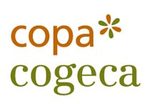|
|
| 15 mar 2019 |
15:49 |

|
Positive conclusions of the European Court of Auditors on organic controls
Maintaining a robust control system is critical for our fast and dynamic European organic sector. The EU organic area has increased by 70% in the last 10 years, while organic retail sales reached 34 billion euros in 2017. Following up on a first report from 2012, the European Court of Auditors (ECA) confirmed yesterday that lessons have been learned and that the control system for European organic products is effective. Room for improvement remains for imported organic goods.
|
|
A main take away from ECA reports presented today in Brussels is that the control system for organic products has continuously improved since 2012. This confirms that the Commission and operators have been working constructively to fine-tune a robust control system that ensures consumer confidence. All the recommendations made by the ECA in 2012 have been implemented in most respects, and the upcoming new rules on organic farming (entering into force in 2021) aim to make the enforcement of the control system faster and more effective.
For Kees Van Zelderen, Chair of Copa and Cogeca Working Party on Organic Farming, “the conclusions of the ECA report show that the organic sector is experiencing a controlled development in Europe. For us, the organic sector can only continue to develop if the credibility of this type of production and consumer confidence are safeguarded. This can only be achieved with an effective control and certification system for organic products.”
Commenting on the general context around organic production at EU level, Mr Van Zelderen added, “The ECA’s report has come at a timely moment, when the Commission and Member States are discussing the implementing rules on controls. On this regard, we will be proactive in ensuring the adoption of further harmonised and effective secondary legislation.”
Even if the vast majority of organic products consumed in the EU are produced locally, part of demand is covered by imported goods. In 2018, 3.3 million tonnes of organic food were imported from over 100 third countries, making it more challenging to control. Considering the ECA report, this is where the main room for improvement lies. Indeed, some weaknesses were reported in the member states’ checks on incoming consignments and in some incomplete checks by control bodies.
Against this background, Copa and Cogeca keep advocating for strengthening supervision by the Commission of the countries included in the list of those recognised as being equivalent for organic production. The Commission should also keep exploring the possible synergies for supervising organic imports with the competent authorities of other significant import markets (such as United States, Canada, Chile, Switzerland, Japan and South Korea).

|
|
|
|